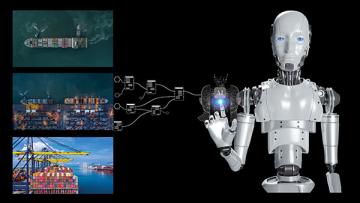Definition
A technology-driven approach that leverages digital tools, data, and advanced analytics to improve efficiency, visibility, and agility across the supply chain.
Learn more about Digital Supply Chain
For CEOs, integrating Industry 4.0 technologies into their supply chain strategies serves as both a risk mitigation strategy and a means to capitalize on efficiency improvements to secure a competitive edge.
As we move into 2025, supply chain executives face an evolving landscape of both exciting opportunities and significant challenges. Advancements in technology are shaping industry trends, changing consumer expectations, increasing environmental…
In 2014, SAP Business Consulting conducted its initial study to understand companies’ visions for digital supply chain management. A lot has changed since then.
While strategic intent to rewire global value chains is there, many manufacturers are falling short, focusing on incremental change that will not be enough to remain competitive, a new report says.
A new survey found that 87% of B2B leaders say a supply chain management system is the most important solution to offering a frictionless digital purchasing journey to customers.
The influence of the New Customer is significant, with their preferences and values having the power to redirect supply chain priorities. Supply chains need to adapt.
Meeting the demands of a modern supply chain requires the integration of physical and digital strategies to enhance efficiency, cost flexibility, and sustainability, in other words, a phygital approach.
The ASCM top 10 supply chain trends for 2024 feature a new number one, but technology trends still dominate the top five overall.
The acquisition strengthens the capabilities of the organization’s Industries eXcellence Global division.
To improve your odds of success, here are some performance outcomes you should be targeting before you plan your next digital transformation project




